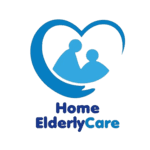Address
304 North Cardinal St.
Dorchester Center, MA 02124
Work Hours
Monday to Friday: 7AM - 7PM
Weekend: 10AM - 5PM

Your body constantly sends signals about its well-being—learning to read them can help you stay ahead of potential health issues. Vital signs monitoring is the practice of tracking essential physiological metrics that indicate how well your body is functioning.
Vital signs are the fundamental measurements of your body’s basic functions. Healthcare professionals typically monitor:
✔ Body Temperature – Indicates fever (infection) or hypothermia
✔ Pulse Rate – Measures heartbeats per minute (normal: 60-100 bpm)
✔ Respiration Rate – Counts breaths per minute (normal: 12-20)
✔ Blood Pressure – Measures circulatory force (normal: ~120/80 mmHg)
✔ Oxygen Saturation (SpO₂) – Tracks blood oxygen levels (healthy: 95-100%)
Many providers now consider pain levels and blood glucose as additional vital signs for comprehensive care.
Early Problem Detection – Abnormal readings can reveal issues before symptoms appear
Chronic Condition Management – Essential for diabetes, hypertension, and heart disease
Post-Surgical Recovery – Ensures safe healing after procedures
Fitness Optimization – Athletes use vitals to enhance performance
Aging Healthily – Helps seniors maintain independence longer
Smartwatches/Fitness Bands – Continuously track pulse, SpO₂, and activity
Home Blood Pressure Monitors – Digital cuffs for easy readings
Thermometers – Digital, ear, or forehead models for quick checks
Pulse Oximeters – Clip-on devices for oxygen level checks
Hospital-grade equipment provides more precise, continuous tracking
Telehealth integrations allow remote monitoring by healthcare providers
Consult a healthcare professional if you notice:
⚠ Fever above 103°F (39.4°C) lasting more than 48 hours
⚠ Resting heart rate consistently below 50 or above 100 bpm
⚠ Blood pressure readings higher than 180/120 or lower than 90/60
⚠ Oxygen levels below 90%
⚠ Difficulty breathing or rapid respiration (over 25 breaths/min)
Rest for 5 minutes before checking blood pressure or pulse
Avoid caffeine, exercise, or smoking 30 minutes before measurements
Take readings at consistent times daily for reliable trends
Record your numbers in a health journal or app
Emerging technologies are revolutionizing how we monitor health:
🔹 Smart clothing with embedded sensors
🔹 AI-powered analysis of health trends
🔹 Non-contact vital sign measurement via cameras/sensors
Regular vital signs monitoring empowers you to:
✅ Catch potential health issues early
✅ Have more productive doctor visits with concrete data
✅ Make informed decisions about your lifestyle and treatment
💬 Do you track your vital signs regularly? What tools do you use? Share your experiences below!
#HealthMonitoring #VitalSigns #PreventiveCare #DigitalHealth #Wellness #HealthyLiving
